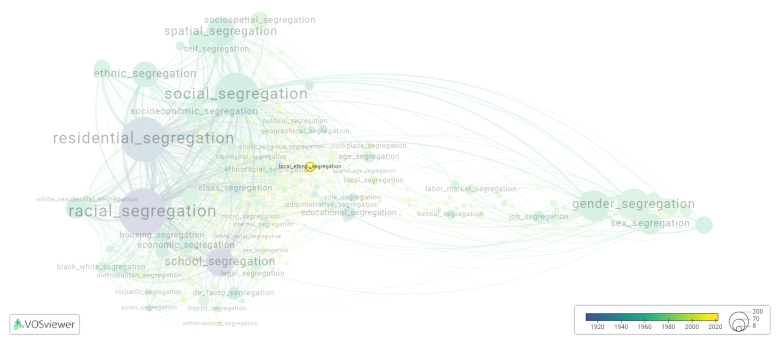Local ethnic segregation
Date and country of first publication[1]
2017
United States
Definition
Local ethnic segregation refers to the separation of different ethnic groups within a specific geographic area. This can occur through various means, such as housing policies, socioeconomic factors, or cultural preferences. Ethnic segregation can have negative effects on communities, including limited access to resources and opportunities for certain groups, as well as increased tensions and conflicts between different ethnic groups. Efforts to reduce ethnic segregation typically involve promoting diversity, integration, and equal opportunities for all residents.
See also
Related segregation forms
Local ethnic segregation is frequently discussed in the literature with the following segregation forms:
ethnic segregation, local segregation

This visualization is based on the study The Multidisciplinary Landscape of Segregation Research.
For the complete network of interrelated segregation forms, please refer to:
References
Notes
- ↑ Date and country of first publication as informed by the Scopus database (December 2023).
Local ethnic segregation appears in the following literature
Kasara K. (2017). Does local ethnic segregation lead to violence?: Evidence from Kenya. Quarterly Journal of Political Science, 11(4), 441-470. Now Publishers Inc.https://doi.org/10.1561/100.00014115
